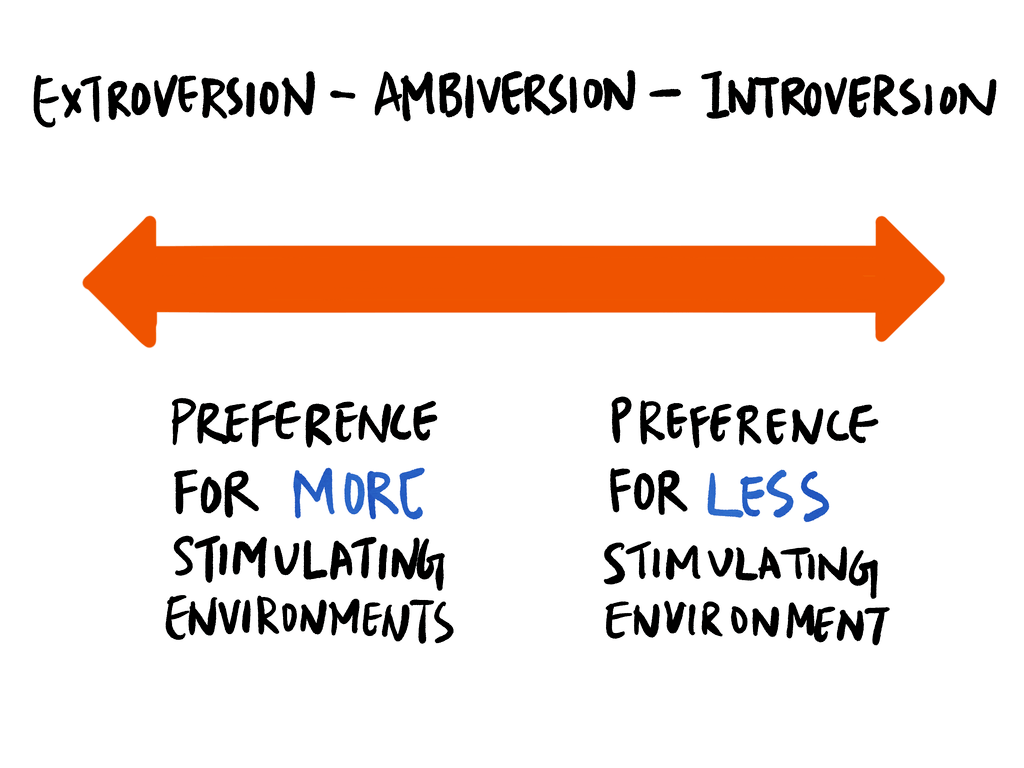Source: Lifehack For example, being at a party, surrounded by noise and people, or taking up a challenging hobby pumps extroverts with energy. On the other hand, introverts don’t actually shy away from social gatherings, but to recharge, they need some time alone. While extroverts would stay all night at a party and feel energized, introverts would come to the party, enjoy for a while, but after some time, they would feel the need to go home and be with their thoughts.
Extroverts and introverts differ in how they react to stimuli
A research conducted by Michael Cohen and a team of scientists required introverts and extroverts to perform a gambling task, and the extroverts’ response when the gamble they took paid off was much stronger.[1] Thus, it comes as no surprise that they just love adventure and novelty, and it is all due to a genetic difference in our brains. This research indicated that introverts and extroverts process rewards in a different way, and it all has to do with our dopamine system. Carl Jung was the one who popularized the terms “introvert” and “extrovert”, but in the 1960s Hans Eysenck proposed that the differences in behavior of these two personality types exist due to differences in brain psychology.[2] Furthermore, he stated that introverts and extroverts have different levels of arousal – extroverts have lower levels of arousal thus they seek excitement to raise that level, while introverts are stimulated more easily so they try to keep excitement at a minimum and consequently keep arousal at the minimum. Moreover, these personality types also differ in how they process stimuli. As research suggests, extroverts have faster processing brains, as the pathway of stimuli is much shorter than in introverts’ brains, as this diagram suggests.[3]
Source: Fast Company
It’s all about the dopamine, which makes extroverts want to seek additional stimuli
Extroverts’ need to seek additional stimuli, which results in constantly seeking new hobbies and interests and cherishing the unfamiliar, may be the result of their genetic code which controls the dopamine function that forces them to look for new experiences.[4] Moreover, extroverts are more likely to seek out situations that will provide them with reward because of their dopamine system.[5] On the other hand, introverts prefer acetylcholine, which is another neurotransmitter. Acetylcholine also creates that pleasant feeling, but it’s related to introspection. For that reason, introverts don’t need to seek external stimuli to feel good. That is why extroverts might come off as easily distracted by new things, while introverts seem more focused.
Introverts vs extroverts: how they react in certain situations
Source: Office Vibe It’s weekend, and time to go out, but it was a tiring week. What would extroverts do? They would definitely call some friends and go out. What would introverts do? They would rather stay at home and catch up on their reading or favorite show. You need to make plans for the next week. What would extroverts do? They would probably think “Why do I need to make plans? I’ll just wait and see how things unfold, and see what I would like to do.” And introverts? They would definitely have to think before deciding something and make some plans in advance. There is a business meeting and you have a great idea. What would extroverts do? They would definitely speak their mind and pitch their idea without thinking twice. And introverts? They would stay quiet, and speak only if someone asks for their opinion. You need to move to a different place. How would extroverts feel? “Great, something new, I can’t wait to move!” And introverts? It would feel as a torture for them, as they struggle to accept changes. It is not possible to say that extroverts are better than introverts or vice versa. Every personality type has its good sides and bad sides, and every person should take the time to really understand and accept themselves.


